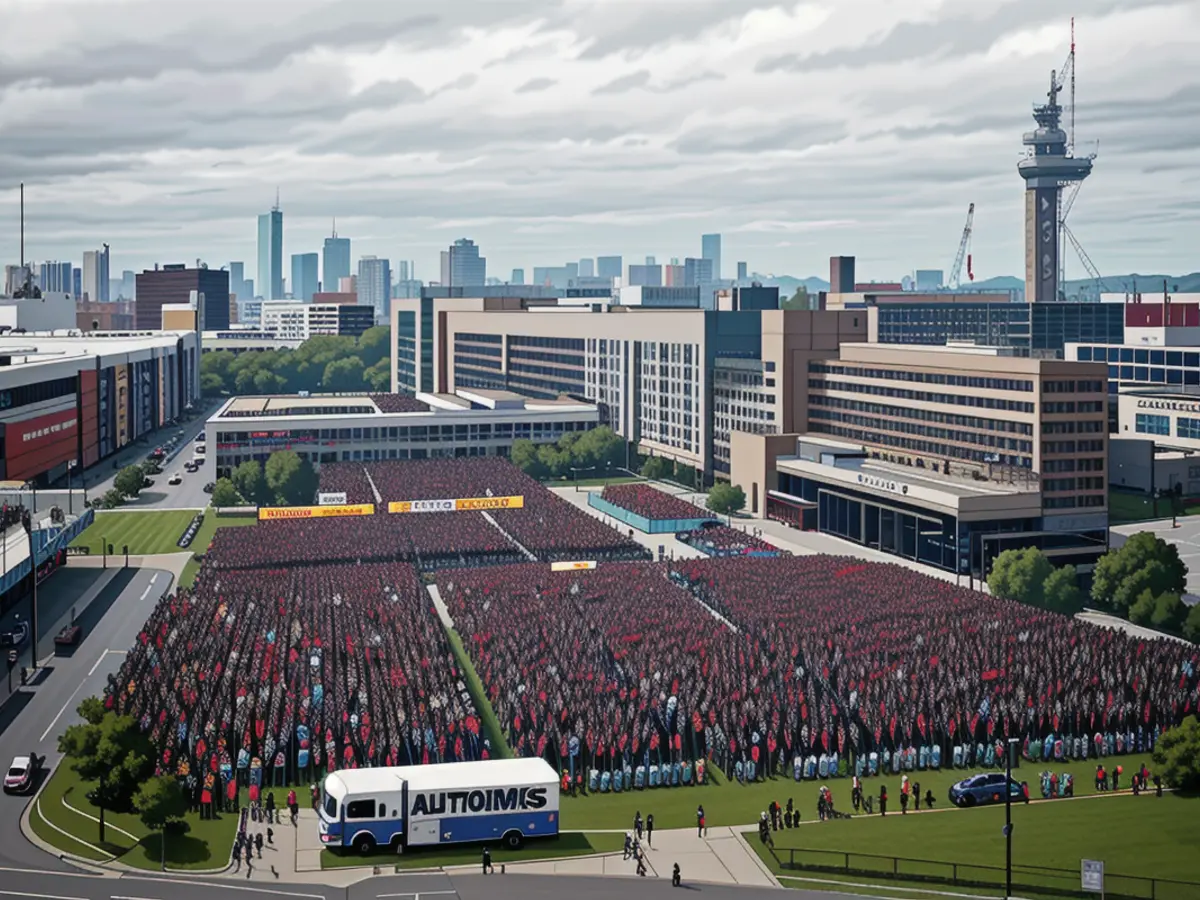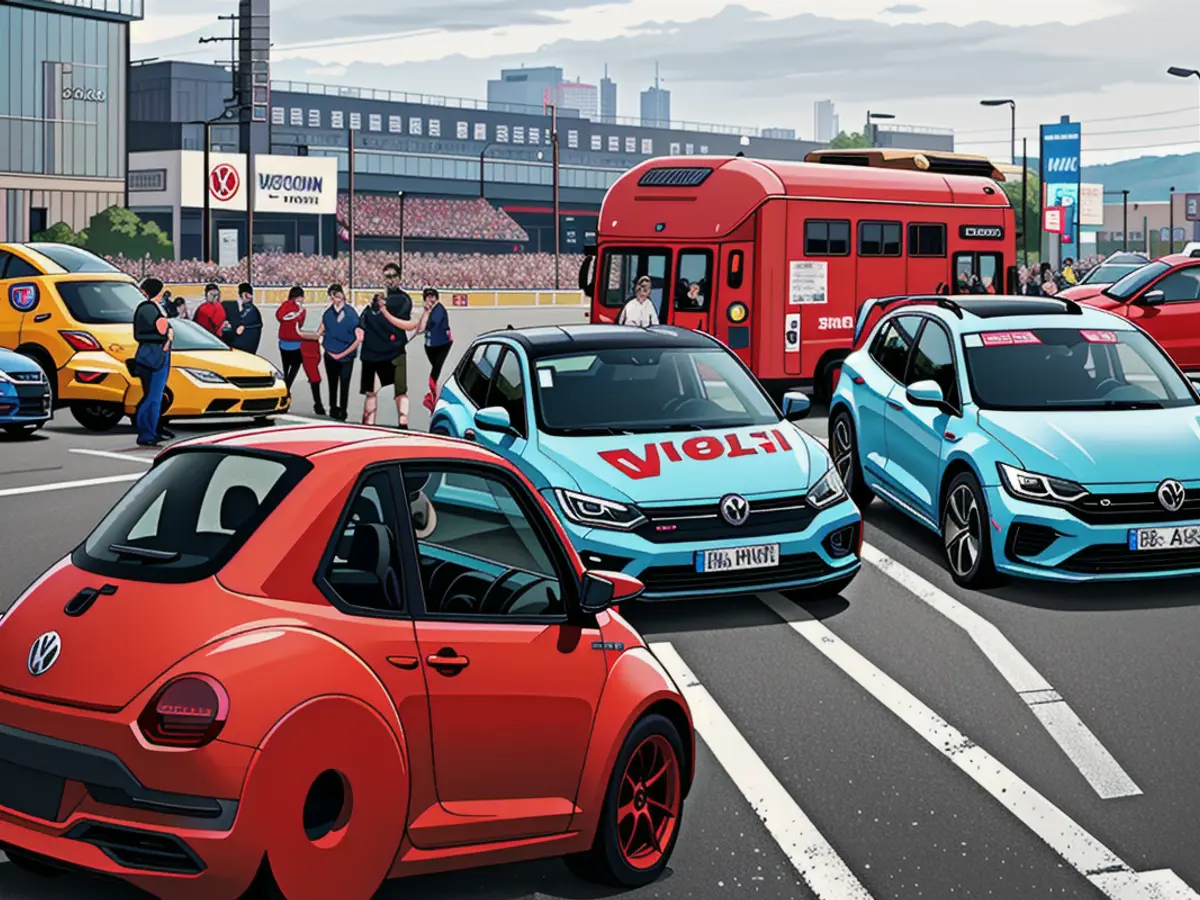Volkswagen strikes agreement with labor organization following prolonged negotiations
Despite being labeled as "the longest in the company's 87-year history," the intense negotiations stretched over 70 hours, resulting in a celebration among union heads as they declared it a "Christmas miracle." The agreement ensured no immediate plant closures, layoffs, or wage reductions.
Volkswagen had been engaging in talks with union representatives since September, indicating the necessity of cost-saving measures in order to compete with cheaper Chinese rivals, moderate European demand, and slower-than-expected electric vehicle adoption.
Over a thousand workers participated in two separate strikes within the past month, which marked the largest industrial action in Volkswagen's history. The protests were in protest against plans to reduce salaries, scale back capacity, and potentially close German factories for the first time.
Oliver Blume, the group CEO, expressed his approval of the agreement, stating that it was a significant step towards ensuring the continued viability of the Volkswagen brand.
Per the agreement, Volkswagen expects to save 15 billion euros annually in the medium term with no substantial impact on its 2024 forecast. The company plans to explore alternative uses for its Dresden plant and reconfigure its Osnabrueck site. A portion of the production will be shifted to Mexico.
IG Metall announced a temporary suspension of the 5% wage increase agreed upon in November, with vehicle production at the Dresden plant ceasing by the end of 2025.
Works council chief Daniela Cavallo stated, "No plant will close, no one will be laid off for operational reasons, and our company-wide wage agreement will continue indefinitely." She expressed satisfaction with the resolved situation under difficult economic conditions.
The talks continued throughout the fifth round since Monday and into the early morning hours at a Hanover hotel, with negotiators occasionally taking short breaks to rest and refuel with caffeine, curry sausages, and fruit. Some workers even played cards for relaxation.
Political Context
The Volkswagen crisis has unfolded during a period of instability and political change in Germany's largest economy, as well as in the wider automobile industry. The question of how to stimulate Germany's lagging economic growth has become a pressing election issue ahead of an unexpected poll in February. Chancellor Olaf Scholz, struggling in the polls, has entreated Volkswagen to keep all its factories operational.
The intense cost-saving measures discussed in the negotiations directly impacted the business operations of Volkswagen, aimed at competing in a global market with cheaper Chinese rivals and modulating European demand.
Following the agreement, Volkswagen anticipates saving 15 billion euros annually, emphasizing the significance of the company's business operations in its ongoing viability.





